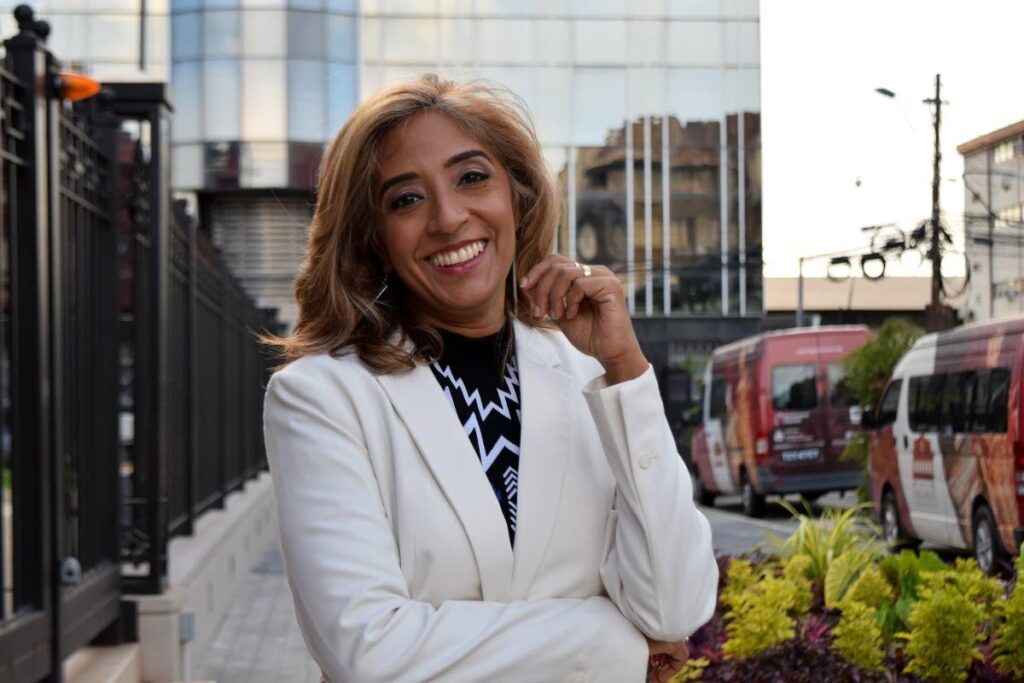Justice for victims

Dr Gabrielle Jamela Hosein
I WRITE with the sorrow of those who carried candles and walked in vigil and in memory of secondary-school student Jayden Lalchan, whose tragic death has been linked to his experiences of being bullied in school. The signs held by those walking together, showing that communities care about their own, said: “Justice for Jayden.”
What would such justice mean? How would it help those also being bullied in schools? Who is responsible for ensuring that children can go to school without facing violence? How should bullies be managed?
Stories of extreme bullying appear regularly, including one yesterday, involving a Tobagonian schoolgirl who had her belongings and her sense of safety destroyed through gross peer behaviour.
Many children can identify with experiences of threat and fear, and school-based surveys attest to this.
In my own experience, children’s experiences of bullying are minimised. Children may be made to feel as if, in some way, they are responsible for being singled out for victimisation. They are also told just to ignore bullies and to find their own way of navigating school spaces and peer groups. If they stand up for themselves or insult back to show they can’t be intimidated, victims are considered just as culpable, and can be at greater risk.
Parents may be made to feel as if they are being overprotective, and they must repeatedly prove their case before institutional action is taken. The message may be that this is normal adolescence and children will eventually resolve these problems themselves.
Schools try to have a conversation with bullies and their parents, but mostly hope that the problem will go away. They miss some of the nuances of online bullying that may be happening simultaneously, especially as online bullying has increased since the pandemic.
Schools punish victims for finally reacting defensively or even aggressively, and a victim who hits back after a term of victimisation may also face suspension and expulsion. It can reach extreme injury or suicide.
This is especially true for children with learning or other disabilities, who are neurodivergent, have anxiety, or who may not fill expectations of masculinity or femininity.
Justice for Jayden requires us to take seriously how many children are experiencing this, from Princes Town to Mason Hall. Key is ensuring that a reporting, response and results-based accountability protocol actually protects victims.
No sense talking about what is in place. We need to be honest about what is not working for victims, rehabilitation of bullies, and addressing problems at home, from family violence to economic hardship to sexual abuse, that give rise to children’s violent behaviour.
The Ministry of Education supports NGO-led programmes and collaborates with community police, but has not incorporated bullying prevention into teaching, such as through the Health and Family Life curricula. All parents should call for this to be implemented immediately.
The Silver Lining Foundation published two studies of gender-based violence in schools which are invaluable resources for bullying prevention – Google: Trinidad and Tobago School Climate Report: Bullying and Gender Based Violence in Secondary Schools 2016 and Trinidad and Tobago National School Climate Survey Report 2019.
Both studies confirm that about one-third of bullying is related to our beliefs about masculinity and femininity, and the toxicity of homophobia. Boys like Jayden, in particular, are bullied because others perceive them to be too effeminate or gay. Even if they are not, adolescent language drenched in the toxicity of gender policing and homophobia is mobilised to harm.
Bullying can be deeply interlocked with punishing some children for not meeting gender ideals as they intersect class, race, and disability by other children using those ideals to assert power. When people react to girls fighting, they are concerned about their no longer being stereotypically feminine, but girls are learning the same dominant ideals that devalue softness and vulnerability.
Justice for Jayden, and others who are bullied, means being aware of how homophobia harms boys regardless of their sexual orientation. It also means challenging anyone who is violent in their words and deeds, and expects this to be accepted as normal or an expression of a societal ideal.
Our patriarchal beliefs and practices cause harm, unfortunately. A whole society needs to recognise this to take responsibility for creating peace. We must be brave enough to see how issues are connected even when we don’t think they should be.
My sincerest condolences to Jayden’s loved ones. As you pursue justice, may you be surrounded by care. You are not alone as you grieve.
Diary of a mothering worker
motheringworker@gmail.com
Entry 541

Comments
"Justice for victims"